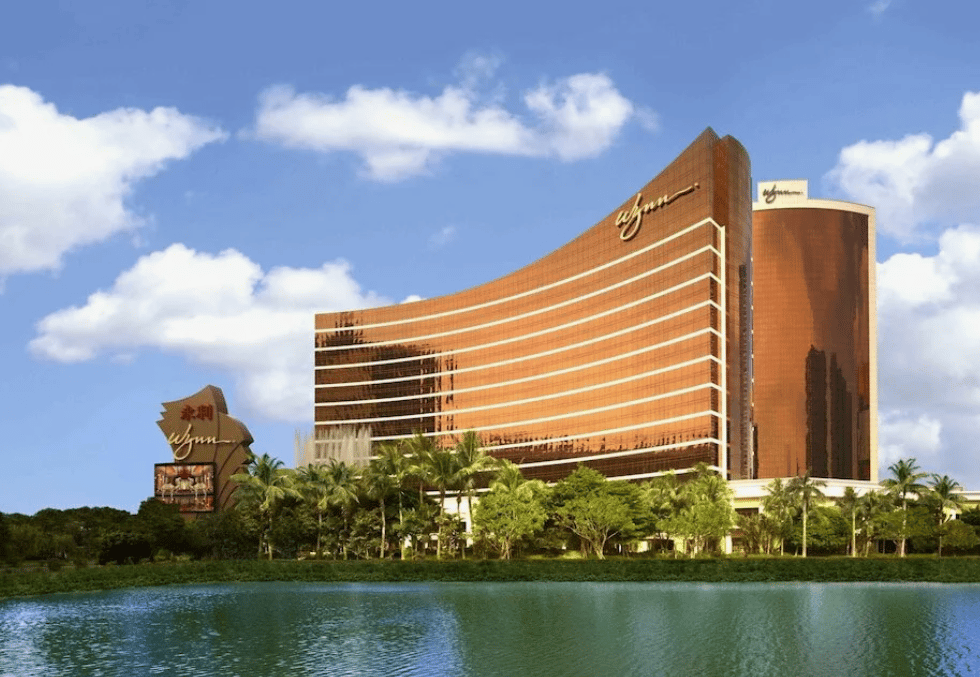
A deal of this scale might set new standards for automation advancements in technology.
The impact of this sale could reach far beyond the immediate players, influencing the entire tech ecosystem.

Wynn Resorts $WYNN has reported a tough start to 2025, with the company’s first-quarter earnings falling short of Wall Street’s expectations. The results reflect a significant decline in revenue from its flagship properties in Macau, a key market for the luxury casino operator. The company’s performance was hampered by a soft demand for high-end resort experiences and a higher-than-usual number of wins by high-stakes gamblers, affecting its VIP casino revenue. As a result, Wynn's shares saw a notable drop of 2.4% in after-hours trading, continuing a downward trend that has seen the stock decline by more than 9% since the start of the year.
This article takes a deeper look into Wynn Resorts' disappointing Q1 performance, its struggles in Macau, and the broader implications for the company's future growth prospects.
Wynn Resorts' results for the first quarter revealed a significant downturn in its key Macau operations. The company reported a 8.7% decrease in revenue at Wynn Palace and a 19.9% drop at Wynn Macau, two of its primary properties in the region. Macau, known as the "Gambling capital of the world," has been a crucial driver for Wynn’s overall business performance. The sharp declines in revenue from these properties have raised concerns about the company’s ability to regain momentum in this competitive market.

High-Stakes Gamblers: Wynn attributed the revenue decline to a higher-than-usual number of wins by high-rolling gamblers, a trend that has put pressure on its VIP casino revenues.
Weak Luxury Resort Demand: A decline in demand for high-end resorts further compounded the company’s difficulties. The slowdown in the luxury travel segment in Asia has been particularly challenging for Wynn Resorts, which heavily relies on affluent clientele for its business.
Regulatory Environment: Macau’s regulatory landscape continues to evolve, with stricter gaming policies and increased competition from new casino entrants affecting the bottom line of established operators like Wynn.
The challenges Wynn Resorts faces are part of a broader trend affecting the gaming and hospitality industries, particularly in Macau. The downturn in the region has been compounded by both macroeconomic factors and company-specific issues. Furthermore, competition from other casino operators in Macau has intensified, creating an increasingly challenging environment for Wynn to maintain its market share.
Increased Competition: New entrants in the Macau casino market have increased competition for both VIP and mass-market players.
Macau’s Economic Slowdown: Slower-than-expected growth in the region, particularly in luxury tourism, has had a direct impact on Wynn’s performance.
Fluctuating VIP Casino Revenue: The volatility in VIP revenue, which makes up a significant portion of Wynn’s earnings, has become a growing concern.
Geopolitical Tensions: Political and economic instability in Asia has also contributed to the uncertainty surrounding the gaming sector in Macau.

While the results from Wynn Resorts in the first quarter were disappointing, there are still reasons for cautious optimism in the long term. The company has significant assets in Macau and the U.S., including its Las Vegas properties, which continue to perform well. Additionally, the company’s efforts to expand its luxury offerings in other parts of the world, including new resorts and entertainment developments, may help diversify its revenue streams.
However, the challenges in Macau are unlikely to disappear soon. The region’s complex regulatory environment and competitive dynamics will require Wynn Resorts to adapt and innovate in order to maintain its position as a leading luxury casino brand.
Refining VIP Strategies: Wynn may need to revisit its approach to attracting and retaining high-roller gamblers, perhaps through enhanced loyalty programs or exclusive experiences.
Leveraging Las Vegas Success: The company’s Las Vegas properties, which have remained strong performers, could serve as a foundation for future growth, especially as the U.S. market recovers post-pandemic.
Diversification of Portfolio: Wynn could explore expanding into new international markets to reduce its dependence on Macau, especially in regions where the gaming industry is poised for growth.
Wynn Resorts' first-quarter results reflect a challenging period for the company, particularly in its Macau operations, which are critical to its revenue generation. With the decline in VIP revenues and weak demand for luxury resorts, the company faces several hurdles in the near term. However, Wynn Resorts still holds significant potential due to its strong brand, international portfolio, and a long history of resilience in the gaming industry.
The company's next steps will be crucial as it seeks to recover from its recent setbacks and continue its pursuit of growth. Investors will need to closely monitor Wynn's performance in the coming quarters to assess whether its recovery strategy can be successful in the face of mounting challenges in Macau.